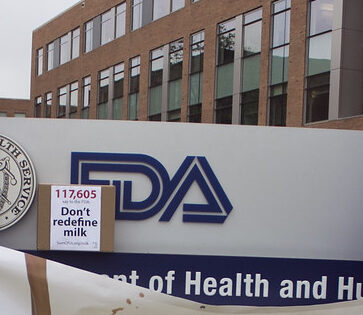Key Takeaways
- An FDA official halted a promising melanoma immunotherapy called RP1.
- Critics say this decision could cost lives of patients with advanced melanoma.
- The move ties into Health and Human Services Secretary RFK Jr.’s anti-pharma stance.
- Career experts and oncologists supported the therapy after strong trial results.
A top FDA official has stopped a new melanoma immunotherapy just after it won a “breakthrough” label. This decision shocked many cancer doctors and patients. They say the therapy could save lives but now faces another delay.
Why the FDA Decision on Melanoma Immunotherapy Raises Questions
Melanoma is a deadly skin cancer. When it spreads, most patients live only about a year. New treatments like RP1 immunotherapy aim to change that. In tests, tumors shrank in nearly all patients. One in six saw tumors vanish. One-third achieved full remission. Because of these results, the FDA called RP1 a “breakthrough” therapy last November. Yet now an FDA official has blocked its approval.
Who Is Dr. Vinay Prasad and What Happened?
Dr. Vinay Prasad works in the FDA’s biologics division. He briefly resigned amid other controversies. Yet Health and Human Services Secretary Robert F. Kennedy Jr. brought him back. Soon after, Dr. Prasad moved to reject RP1 therapy. He argued the trials lacked a placebo group. However, many doctors say it is unethical to give terminal patients a placebo when other treatments exist.
Clinical Trials and Ethical Concerns
In typical drug tests, a control group gets a placebo. But in terminal diseases, ethics boards often forbid that. Patients must receive at least the standard care. Thus, the absence of a placebo arm in the melanoma immunotherapy trials matched usual practice. Moreover, career FDA reviewers and oncologists backed the design. They saw unprecedented results.
Political Context and Broader Implications
This fight over melanoma immunotherapy is not just about one drug. It comes as RFK Jr. pushes anti-pharma views. Recently, he joined President Trump to back a theory tying autism to Tylenol use in pregnancy. That idea has little solid evidence. Critics say these moves fit an anti-pharma agenda that may cost lives.
Impacts on Patients Waiting for Melanoma Immunotherapy
Patients with advanced melanoma often have no options beyond experimental drugs. For them, each month matters. A delay in RP1 approval could prolong suffering and cut lives short. In fact, some patients now must wait for more trials. Others might abandon hope for this new therapy.
Career FDA Staff vs. Political Appointees
Inside the FDA, many career staff wanted to approve RP1. They saw clear, strong data. Yet political pressure from above can sway decisions. In this case, the political appointee—Dr. Prasad—overruled career experts. This clash highlights a bigger problem. When politics enters drug approvals, patient needs can take a back seat.
The Scandal and Legal Battles
Some trial-lawyer firms have sued Replimune, claiming it misled investors about RP1’s approval chances. Ironically, those suits might profit from the therapy’s delay. Critics say Dr. Prasad’s insistence on a placebo arm mirrors these legal pressures. They argue the FDA misled Replimune in earlier talks, then blamed the company for confusion.
Why Melanoma Immunotherapy Matters
Melanoma immunotherapy is different from older treatments. Instead of poisoning cancer cells, it boosts the body’s own defenses. RP1 uses a virus to attack tumors and wake up immune cells. In many patients, it looked like a miracle. Now, however, its path to patients is blocked.
What This Decision Says About Public Health
Experts say the greatest risk now is not cancer itself. It is regulators who prefer political agendas over patient care. When a therapy shows life-saving potential, delaying approval can harm many people. Critics worry this pattern may repeat with other drugs and vaccines.
Next Steps for RP1 and Other Therapies
Replimune Group, the company behind RP1, can appeal the FDA decision. They might run new trials or negotiate fresh guidelines. Yet each extra study adds years to wait times. Meanwhile, patients with no options may seek risky alternatives or lower-quality treatments.
What Patients and Families Can Do
Families can reach out to their senators or representatives. They can ask for hearings on drug approval policies. Patient groups can raise public awareness. In addition, they can support career FDA scientists who back ethical trial designs. Above all, they should share stories of how delays harm real people.
Looking Ahead in Cancer Care
Despite this setback, research on melanoma immunotherapy continues worldwide. Other trials use different oncolytic viruses or immune checkpoint blockers. Each new study builds on lessons from RP1. If regulators learn to balance ethics and patient needs, future therapies may win approval faster.
FAQs
What makes RP1 a breakthrough in melanoma immunotherapy?
RP1 showed unprecedented results in early trials. Nearly all patients saw tumor shrinkage. One in six had tumors disappear entirely. Such outcomes in advanced melanoma are rare.
Why did the FDA official demand a placebo group?
Dr. Prasad argued that without a placebo, trial results might lack rigor. However, doctors say giving a placebo to terminal patients is unethical when they could get standard care.
How might this decision affect patients?
Approval delays mean patients wait longer for new options. Those with aggressive melanoma may run out of time before RP1 returns for review.
Can Replimune Group challenge the FDA’s ruling?
Yes, they can appeal or design new trials. But each new step adds time and cost. That could push the therapy’s arrival into the future.
What role do political appointees play in FDA decisions?
Political appointees can influence or override career staff. Their priorities sometimes reflect broader agendas, not always aligned with patient needs.
How can the public influence drug approval policies?
Citizens can contact legislators, sign petitions, and join advocacy groups. Public pressure can encourage transparency and patient-centered rules.
